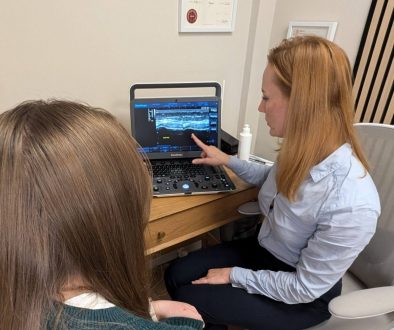Shockwave Therapy for Treating Plantar Fasciitis in Cheltenham: A Comprehensive Guide
Plantar fasciitis is a common foot condition that affects millions of people worldwide. It occurs when the thick band of tissue (the plantar fascia) that connects the heel bone to the toes becomes inflamed and painful. If you’re suffering from plantar fasciitis, you’re not alone. But fear not—there’s a promising treatment option that could bring relief: shockwave therapy.
Understanding Plantar Fasciitis
Before we delve into shockwave therapy, let’s understand what plantar fasciitis is and why it can be so debilitating. Here are the key points:
What Is Plantar Fasciitis?
Plantar fasciitis occurs when the ligament at the bottom of the foot between the heel and the toes deteriorates, causing intense foot pain.
It often follows injury or overuse, especially in runners, athletes, and those who spend long hours on their feet.
Common Symptoms of Plantar Fasciitis
- Heel Pain: The hallmark symptom is a sharp pain in the heel, especially during the first steps in the morning.
- Stiffness: The foot may feel stiff and less flexible.
- Discomfort: Pain worsens after prolonged standing or walking.
Causes of Plantar Fasciitis
- Overuse: Repetitive stress on the plantar fascia due to activities like running or standing for extended periods.
- Biomechanical Factors: Flat feet, high arches, or abnormal foot mechanics can contribute.
- Age and Weight: Older adults and overweight individuals are more susceptible.
Shockwave Therapy: How Does It Work?
Shockwave therapy, also known as extracorporeal shock wave therapy (ESWT), is a non-invasive treatment that uses high-energy sound waves to stimulate healing and reduce pain. Here’s how it works:
Mechanism of Action:
- Shockwaves create mechanical stimulation at the affected site, promoting increased blood flow and the release of growth factors.
- These factors accelerate tissue repair and regeneration.
Application Process:
- A specialised device delivers focused shockwaves to the heel and plantar fascia.
- The treatment is typically administered once a week for three to five weeks.
Patient Experience:
- Shockwave therapy is well-tolerated, with minimal discomfort during the procedure.
- Patients can resume normal activities the next day.
Evidence Supporting Shockwave Therapy
Research has shown promising results for shockwave therapy in treating chronic plantar fasciitis:
Clinical Studies:
- A 2017 meta-analysis of 13 randomised controlled trials found that shockwave therapy was more effective than placebo in reducing pain and improving function.
- Patients experienced significant pain reduction and increased mobility.
NICE Guidance (National Institute for Health and Clinical Excellence):
- NICE recommends shockwave therapy for selected patients with chronic plantar fasciitis.
- Monitoring patient progress for up to a year after the procedure is crucial.
Further Research:
- NICE encourages ongoing research to refine treatment protocols and gather more evidence.
- The procedure’s impact could be substantial, given the prevalence of plantar fasciitis and limited treatment options.
Shockwave therapy offers hope for those battling plantar fasciitis. As an expert chiropractor, I recommend discussing this treatment option with your healthcare provider. Remember, informed decisions lead to better outcomes. Let’s step forward…. pain-free!
For more information and support please contact the clinic on 01242 254000 to speak to one of our expert healthcare professionals.
Read more about Plantar Fasciitis »





